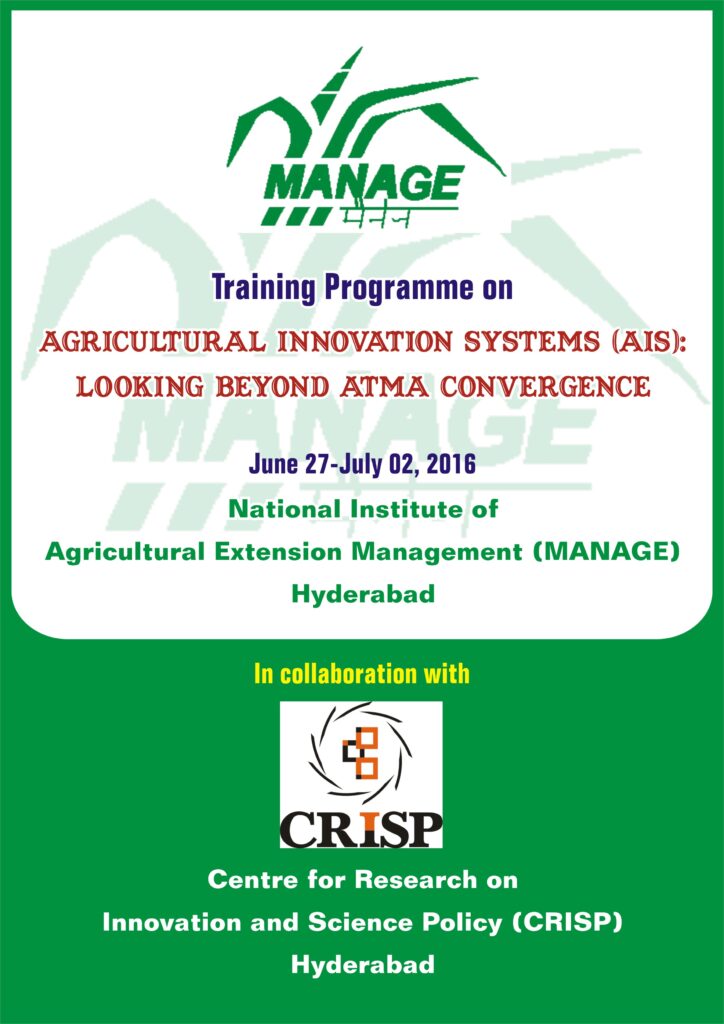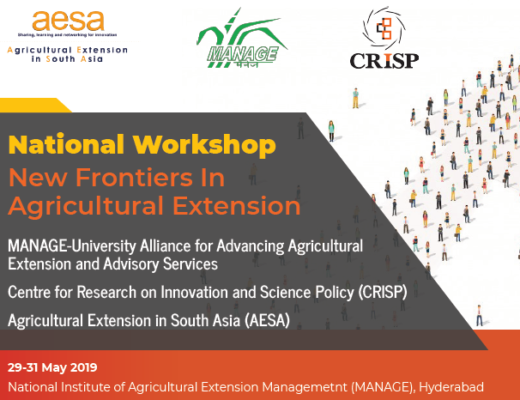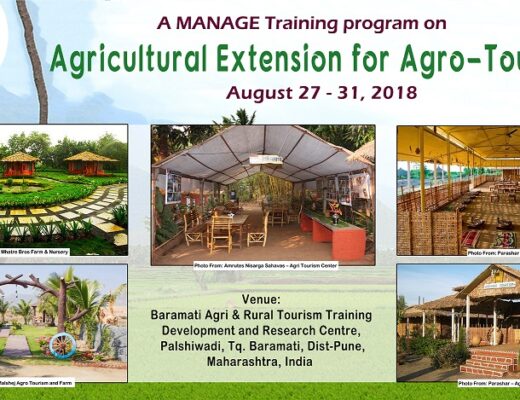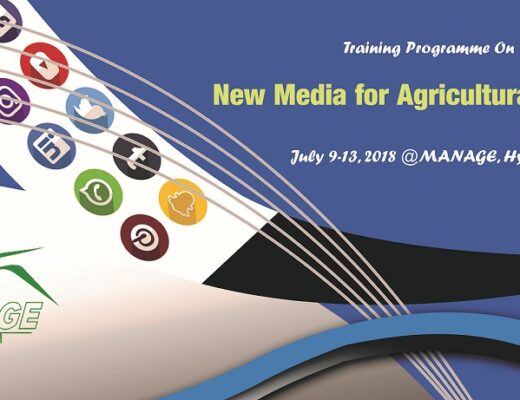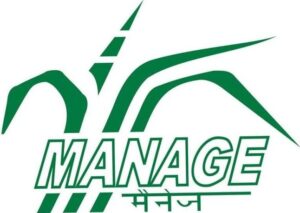
Training Programme on
Agricultural Innovations Systems (AIS): Looking beyond ATMA Convergence
June 27-July 2, 2016,
National Institute of Agricultural Extension Management (MANAGE), Hyderabad
In collaboration with
Centre for Research on Innovation and Science Policy (CRISP), Hyderabad
India’s extension reforms facilitated emergence of new institutional arrangements, and emphasized convergence of programmes different agencies and partnerships among organisations in the public, private and the voluntary sector. However, the level of convergence, interactions, knowledge flows and partnerships haven’t been promising so far. Lack of perspectives and frameworks that support systems thinking among the different actors has been one of the major shortcomings in promoting new institutional arrangements. A training programme on Agricultural innovation systems (AIS) is therefore proposed as it could enhance capacities among the public and private extension professionals to embrace new ways of working that builds on collaboration and convergence.
The AIS framework recognises innovation as an interactive process of individuals and organizations that demand and supply knowledge, as well as the policies and mechanisms that affect the way different agents interact to share, access, and exchange knowledge (Fig 1). Under the AIS framework, innovation is not merely concerned with technical innovation. It also includes organizational and institutional innovation. While interaction among the actors within the innovation system is critical for innovation, several institutional and policy barriers generally constrain effective collaboration and knowledge flows among these different actors. Though research, education, and extension are key components of AIS, these are usually not sufficient to bring knowledge, technologies, and services to farmers and entrepreneurs.
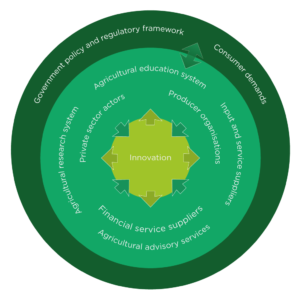
Fig 1: Agricultural Innovation System (Source: GFRAS, 2015)
The idea of the AIS highlights the importance of a large number of other actors possessing different types of knowledge (e.g. farmer and industry associations, market intermediaries, consumer groups, policy-makers, certifying agencies, credit and input suppliers, etc.) and their effective interactions for innovation. Agricultural extension services are integral to the AIS. The great value of AIS framework is that it allows the role and organisation of extension to be understood as part of a wider canvas of actors, processes, institutions, and policies that are critical for innovation.
Agricultural extension could better contribute to the process of innovation if they would expand their conventional technology transfer role including more functions, especially related to facilitation, brokering, and enhancing the capacity of the actors in the AIS to provide integrated support to farmers.
The main purpose of the training programme on AIS is to:
- Providing conceptual clarity on innovation and innovation systems and its implications for agricultural extension.
- Orienting participants to different tools to diagnose innovation systems.
- Facilitating to gain practical understanding of the usage of the diagnosis tools in actual field conditions.
- Helping participants to apply their learning in their work environment.
Methodology
- Presentation the resource persons
- Analyzing case studies on AIS
- Experience sharing participants
- Field visit
Participants and nomination
- The participants in the program would include senior and middle level officials of Agriculture, Horticulture, Animal husbandry, Sericulture, Fisheries, faculty from SAUs, Scientists of ICAR, SMS from KVKs and NGOs.
- Boarding and lodging and other tuition expenses of the training participants will be arranged MANAGE. However, TA and DA of the participants have to be borne the sponsoring agency/ participant.
- The training program will start 9.00 a.m. on 27.06.2016 and close 5.30 p.m. on 02.07.2016.
- For further clarifications and nominations, please mail to Dr. Saravanan Raj, Director (Agril. Extn.), MANAGE, Rajendranagar, Hyderabad (e-mail: raj@manage.gov.in/ saravananraj@hotmail.com).
![]()
